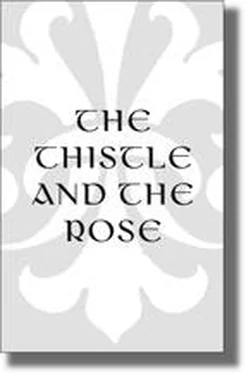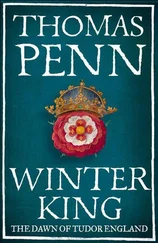Jean Plaidy - To Hold the Crown - The Story of King Henry VII and Elizabeth of York
Здесь есть возможность читать онлайн «Jean Plaidy - To Hold the Crown - The Story of King Henry VII and Elizabeth of York» весь текст электронной книги совершенно бесплатно (целиком полную версию без сокращений). В некоторых случаях можно слушать аудио, скачать через торрент в формате fb2 и присутствует краткое содержание. Жанр: Старинная литература, на русском языке. Описание произведения, (предисловие) а так же отзывы посетителей доступны на портале библиотеки ЛибКат.
- Название:To Hold the Crown: The Story of King Henry VII and Elizabeth of York
- Автор:
- Жанр:
- Год:неизвестен
- ISBN:нет данных
- Рейтинг книги:5 / 5. Голосов: 1
-
Избранное:Добавить в избранное
- Отзывы:
-
Ваша оценка:
- 100
- 1
- 2
- 3
- 4
- 5
To Hold the Crown: The Story of King Henry VII and Elizabeth of York: краткое содержание, описание и аннотация
Предлагаем к чтению аннотацию, описание, краткое содержание или предисловие (зависит от того, что написал сам автор книги «To Hold the Crown: The Story of King Henry VII and Elizabeth of York»). Если вы не нашли необходимую информацию о книге — напишите в комментариях, мы постараемся отыскать её.
To Hold the Crown: The Story of King Henry VII and Elizabeth of York — читать онлайн бесплатно полную книгу (весь текст) целиком
Ниже представлен текст книги, разбитый по страницам. Система сохранения места последней прочитанной страницы, позволяет с удобством читать онлайн бесплатно книгу «To Hold the Crown: The Story of King Henry VII and Elizabeth of York», без необходимости каждый раз заново искать на чём Вы остановились. Поставьте закладку, и сможете в любой момент перейти на страницу, на которой закончили чтение.
Интервал:
Закладка:
She turned her head away to hide her emotion; and he liked that too.
He put his arms about her and kissed her.
“I shall never forget this moment,” she said. “I shall love you until the day I die.”
She heard a chaffinch sing in the gardens. Then the bells were pealing. In the streets the people were waiting to see him and his chosen bride.
“The King is dead,” they would say. “Gone is the old miser and in his place this handsome young man, this golden boy, every inch of him a king.”
Already they were proclaiming him.
“God bless the King. God save King Henry the Eighth.”
Bibliography
Aubrey, William Hickman Smith, National and Domestic History of England
Bruce, Marie Louise, The Making of Henry VIII
Chrimes, S. B., Henry VII
Gairdner, James, Henry VII
Gairdner, James, History and Life and Reign of Richard III
Gairdner, James, Life and Papers of Richard III
Green, John Richard, History of England
Green, Mary Anne Everett, Lives of the Princess of England
Guizot, M. Translated by Robert Black, History of France
Halsted, Caroline A., Richard III
Hume, David, History of England from the Invasion of Julius Caesar to the Revolution
Hume, Martin A. S., Spain: Its Greatness and Decay
Jenkins, Elizabeth, The Princes in the Tower
Kendall, Paul Murray, Richard III
Luke, Mary M., Catherine the Queen
Mattingly, Garrett, Catherine of Aragon
More, Sir Thomas, Life of Richard III
Prescott, William H. Edited by John Foster Kirk, History of the Reign of Ferdinand and Isabella the Catholic
Ramsey, J. H., Lancaster and York
Stephen, Sir Leslie and Lee, Sir Sydney, The Dictionary of National Biography
Strickland, Agnes, The Lives of the Queens of England
Timbs, John and Gunn, Alexander, Abbeys, Castles and Ancient Halls of England and Wales
Wade, John, British History
Walpole, Horace, Historic Doubts on the Life of Richard III
Williams, Charles, Henry VII
A Reader’s
Group Guide
 he marriage of Henry Tudor and Elizabeth of York united the Lancasters and the Yorks, and began the Tudor Dynasty. Henry’s claim to the throne was tencuous but with Elizabeth of York, the daughter of King Edward IV, as his wife, he created a greater claim to the throne not only for himself, but also for his children. Although his reign was ripe with pretenders to the throne, Henry’s sharp mind, rather than physical combat, enabled him to maintain his position and secure the way for his second son, Henry VIII. Plaidy’s well-researched novel displays a changed England, finally at peace.
he marriage of Henry Tudor and Elizabeth of York united the Lancasters and the Yorks, and began the Tudor Dynasty. Henry’s claim to the throne was tencuous but with Elizabeth of York, the daughter of King Edward IV, as his wife, he created a greater claim to the throne not only for himself, but also for his children. Although his reign was ripe with pretenders to the throne, Henry’s sharp mind, rather than physical combat, enabled him to maintain his position and secure the way for his second son, Henry VIII. Plaidy’s well-researched novel displays a changed England, finally at peace.
The following questions were created to help your reading group discuss Jean Plaidy’s To Hold the Crown .
1. The novel begins with a quote from Shakespeare’s Henry IV, Part 2: “Uneasy lies the head that wears a crown.” How does this quote relate to those who wear crowns in this novel? Think specifically of Henry Tudor, James IV of Scotland as well as Isabella and Ferdinand.
2. Henry Tudor is described throughout the book as being very “calm.” How does this personality trait affect his decisions in matters of state? In his marriage?
3. Elizabeth Woodville and Margaret Beaufort have a superficial relationship for the sake of their children, the King and Queen. As mothers-in-law they are required to respect each other, yet there is much tension between the two. Describe some of their points of contention. Were you reminded of modern relationships between any of your relatives?
4. At the beginning of the novel, Plaidy describes Elizabeth: “That was her life—buffeted from one situation to another. Never was she consulted as to her wishes. They would do with her as best suited them” (The Birth of a Prince). Discuss the complexities of being a royal woman with no free will. How does Elizabeth deal with her situation? How would you feel if so much of your life was decided for you?
5. When Elizabeth’s first baby is born, her mother thinks: “Oh no, Arthur was not going to find life easy with a name like that and it was a great error of judgment to have saddled him with it” (The Birth of a Prince). Why was he named Arthur? How does her prediction come true?
6. Cecilia and Elizabeth are the two eldest York sisters, yet they are very different. Cecilia sees her sister Elizabeth as “merely the King’s wife” (The Baker’s Boy). How was being his wife, and not his partner, beneficial to Elizabeth? How does Cecilia avoid Elizabeth’s fate? Had you been at Court, would you be an Elizabeth or a Cecilia? Why?
7. Elizabeth Woodville mourns her two sons Edward V and Richard IV and is haunted by the fact that she will never know what happened to them. From what you knew before reading this book, what did you think had happened to them? Were you surprised by Plaidy’s interpretation? Why or why not?
8. Who was Perkin Warbeck? Who supported him? Why was he so menacing to Henry, when Henry knew he was a pretender?
9. Henry Tudor discovers that Sir William Stanley, despite changing sides from Richard III to help Henry win the battle of Bosworth Field, has been treacherous in dealing with Perkin Warbeck. Discuss how even with great power, Henry is unable to control every move in his Court. What did you think of the way he handled Stanley’s betrayal?
10. How was Henry VIII described in his younger years? How do you imagine he acted as a child? Discuss Henry VIII’s relationships with his siblings. Early on we see his envy of Arthur and his disdain for Margaret. What motivates these feelings? Think of some of his early actions and ambitions—did any of his wishes come true?
11. What was Henry Tudor’s motivation behind the forced friendship of the Earl of Warwick and Perkin Warbeck? Why was it necessary to accuse Warwick? What did you think about Henry’s plot? What would you have done, had you been in his position?
12. Katharine of Aragon is originally married to Arthur. Why is she, in the eyes of the church, allowed to marry Henry after Arthur’s passing?
13. Elizabeth of York “died on the eleventh of February, nine days after the birth of the child. It was her own birthday and she was thirty-eight years old.”(Birth and Death). What does her age tell you about the quality of healthcare at the time? After having six children, were you surprised to know she was pregnant again? What does this tell you about the importance of children in a royal family?
14. Juana has a very passionate relationship with Philip, unlike the conventional woman of the time. She is described as being mad, but do you suppose she is? Or is she perhaps a strong-willed woman living in an age that is unprepared for her open jealousy and uninhibited emotions? Could she have been more stable than people thought? What do you think?
15. Throughout the novel, Henry VIII is compared by various people to his grandfather, Edward IV. From what you learn of Edward and from what you know of Henry, both in this novel and later in his life, what do you think of the comparison? Is it accurate? Why or why not?
An Excerpt from
Katharine of Aragon
The Arena
 he sun picked out sharp flints in the gray walls of the towers so that they glinted like diamonds. The heat was great, and the courtiers sweated beneath their stomachers over which their doublets were elegantly laced; they did not move even to throw back their long loose-sleeved gowns. Each man and woman among them was intent on what was going on in the arena before them, where a lion—one of the finest and fiercest in the King’s menagerie—was engaged in a bloody fight with four English mastiffs. The dogs were sturdy and game; but this lion had never been beaten. He roared his contempt of the four dogs, and the spectators cheered him.
he sun picked out sharp flints in the gray walls of the towers so that they glinted like diamonds. The heat was great, and the courtiers sweated beneath their stomachers over which their doublets were elegantly laced; they did not move even to throw back their long loose-sleeved gowns. Each man and woman among them was intent on what was going on in the arena before them, where a lion—one of the finest and fiercest in the King’s menagerie—was engaged in a bloody fight with four English mastiffs. The dogs were sturdy and game; but this lion had never been beaten. He roared his contempt of the four dogs, and the spectators cheered him.
Интервал:
Закладка:
Похожие книги на «To Hold the Crown: The Story of King Henry VII and Elizabeth of York»
Представляем Вашему вниманию похожие книги на «To Hold the Crown: The Story of King Henry VII and Elizabeth of York» списком для выбора. Мы отобрали схожую по названию и смыслу литературу в надежде предоставить читателям больше вариантов отыскать новые, интересные, ещё непрочитанные произведения.
Обсуждение, отзывы о книге «To Hold the Crown: The Story of King Henry VII and Elizabeth of York» и просто собственные мнения читателей. Оставьте ваши комментарии, напишите, что Вы думаете о произведении, его смысле или главных героях. Укажите что конкретно понравилось, а что нет, и почему Вы так считаете.












